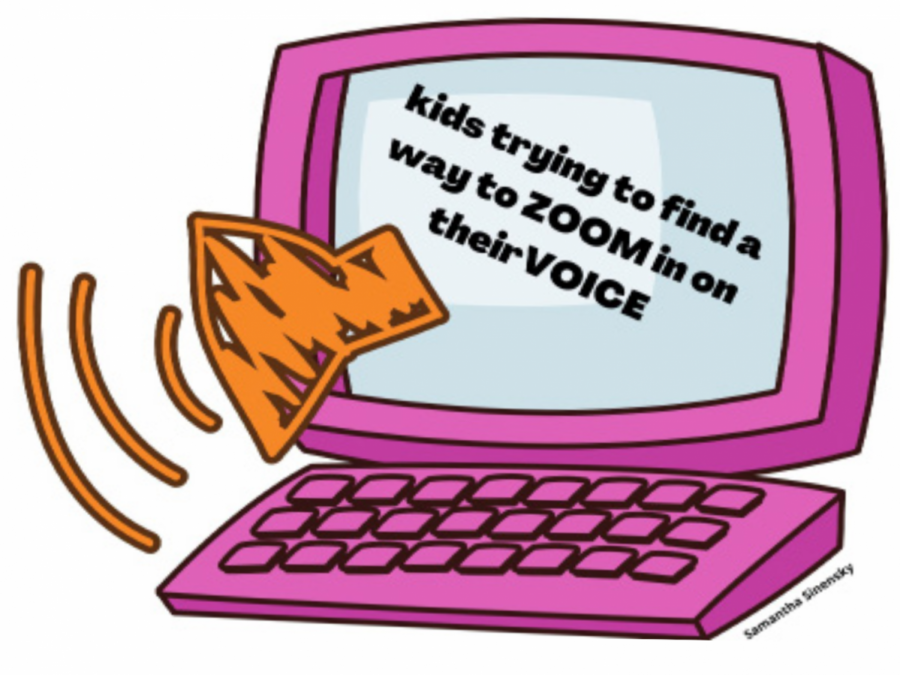Zoom: The Ideal Learning Medium?
Zoom school’s long-term effects are still widely unknown, and we will probably only find out what it’s done to our generation years after the pandemic. Are the students at Ramaz’s lives going to be forever dominated by this software that a year ago they never knew existed? When the pandemic hit, many thought this was a phase, a short blip in our lives. Rachel Abelson 24’ said, “Who knew it would actually last this long, that our lives would be so dominated by it?”
Many students and teachers feel that the pandemic and the subsequent use of technology have prompted increased discussion, particularly
in clubs like Rampo. “Zoom has made things better for things like Rampo because more kids show up. It has brought in a lot more peo- ple and voices,” said Mr. Deutsch. However, some feel that it may hinder free speech and that the reliance
on technology causes us to become more apathetic. Uri Musheyev 24’ said, “When we are on screens, we don’t feel bad for others. If we say something controversial or incorrect, there are basically zero repercussions.” On the other hand, Brayden Kohler, 23’ said that “kids will say what they want to say- I don’t think Zoom or tech have anything to do with
their opinions.”
Teenagers’ lives are lived through tech-
nology. According to the Washington Post, the average teen spends up to nine hours on screens every day. This reliance on technology has trans- lated into the constant need to check Schoology. Brayden Kohler 23’ said, “Schoology used to be a place where people would post about the air pods they lost or the mac that went missing. Now we need to check Schoology for important things like Zoom links. It’s taken on a new use this year for sure.” Some teachers have figured out clever ways to use Schoology to promote and educate students
on how to behave on digital platforms. For exam- ple, Mr. Deutsch said, “One of the things I’m try- ing to work on is to make Schoology the kind of place where kids learn how to interact online.” He believes that the administration should take a role in actively encouraging digital participation. Mr. Deutsch also stated that “Many kids are nervous about posting on Schoology since they are afraid of repercussions. We live in a society in which you are told if you offend somebody, you’re going to be in trouble. So I don’t think kids want to express their opinions openly. The school should make a policy that clarifies for students what they can and can’t say. If you knew certain remarks were fine, more kids would be willing to use Schoology.”
However, some students feel that School- ogy posting should be kept to a minimum for the sake of orderliness and that it’s not a discussion fo- rum. Rachel Abelson, 24’ said, “I can never find the correct zoom links, homework assignments, or any of the important stuff. Once a teacher posts something, it is almost instantly buried. It’s a real issue, and the school should find a way to clean up the website. Sorry to say, but Schoology isn’t the place for political arguments.” Emy Khodorkovsky ’24 said, “I 100% percent wish we could go to school normally. And I wish we could go back to school as soon as possible. But for the time being, Zoom is the best alternative we have.” Regardless of the student’s and faculty’s opinions, for the time being, Zoom and Schoology are staples in every- day life for members of the Ramaz community.



